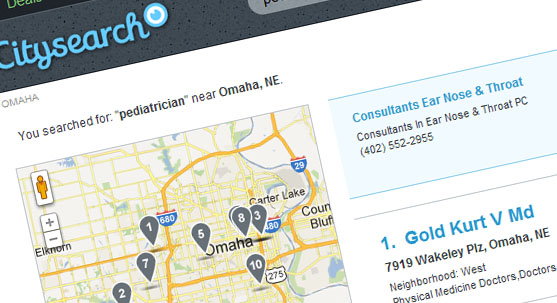I realize there are a lot of feelings out there about the whole idea of asking patients to review your practice. A lot of practices recognize the value of patient reviews while others, well, couldn’t care less. Regardless of whether or not your practice actually sees the value in online feedback and is active in dealing with it, mistakes can still be made. Here are just a few.

Mistake #1 – Assuming that no one reads online reviews of your practice
Several studies I’ve read in the past have suggested that the number of consumers researching a business or product online, before making a decision, is on the rise. I was curious about this and how it applies to healthcare…and did some digging. An interesting social media survey by PricewaterhouseCoopers LLP in 2012 found that 16% of the individuals they surveyed had used social media to post reviews of medications, or treatments, or doctors, or health insurers. This was 16% of all people they surveyed. If we narrowed it down to the 18-24, college or graduate group, that percentage jumps to 46%. If we narrow it down to females in that same demographic, it’s 60%. The 18-24 demographic was the most likely to share online feedback about their experience, followed by the 25-34 group.
I think it’s reasonable to assume that if these folks are writing online reviews, they’re likely reading them as well. I can tell you that as a 31 year old patient, not only have I written online reviews of my healthcare providers, I’ve read them and used them at least in part of my decision making. Even after I’ve chosen a provider, I still monitor what’s being said about the practice I’ve chosen.
Assuming that no one reads online reviews is dangerous because it gives you an excuse to turn a blind eye to what’s being said about you online. It makes you less likely to care enough to query your name or your practice’s name in an online search and scope out what’s being said figure out a way to respond to issues that are arising. Never underestimate the damage an unmonitored negative online reputation can inflict. It can not only impact the number of referrals and patient visits you receive, but can also have a negative impact the relationship and the way you and your staff are treated by current patients.
Mistake #2 – Being too proud to ask for reviews
I’m always amazed at how “old school” some healthcare providers are when it comes to this sort of thing. It’s like they think patients and other healthcare providers will think less of them for asking for reviews. And maybe to some degree, it’s true…if you go about it the wrong way. If you beg for reviews or push too hard for them, some might question your professionalism. If you’re laid-back, genuine, and helpful about it, people would be much more likely to share their feedback. Sending a simple follow-up email with links to places where I can submit my feedback would work. Also before I leave your office, just mentioning that you’re on Healthgrades and would appreciate some feedback would probably work too. There is nothing embarrassing or unprofessional about being candid and communicating to patients that their online feedback would be valuable to your practice.
Mistake #3 – Asking for online reviews at inappropriate times
Some practices get in the habit of randomly sending an email blast to patients asking for online reviews or including a link, or links, to places where patients can leave reviews. It doesn’t take a rocket surgeon to figure out that this really isn’t the best approach. For one thing, these reviews websites like Yelp, CitySearch, etc. are places for thoughtful opinions of your practice. It’s not like your high school yearbook that you and your friends pass around and sign. The best reviews, and the ones least likely to be auto-deleted by the actual reviews website (Google’s algorithm is getting much more aggressive about deleting certain Google reviews by the way), are the reviews that are detailed and deemed helpful by others. So while it might give you warm and fuzzies reading one-liner compliments of your practice by patients, the gold will be in the thoughtful and more detailed reviews.
The best way to get these detailed, high-quality reviews is to request them shortly after the patient’s visit to your office. The more immediate the request, the better chances of getting a great response. Also, reviews websites are far less likely to delete reviews that arrive sporadically instead of in large clumps – which can be a sign of reviews solicitation and forbidden on most reviews websites.
The following is a guest article by Rachel Ankersen of TeleVox Software; a company that offers solutions for automated messaging and appointment confirmations. You can follow Rachel on BeyondtheSite.org or on Twitter.

